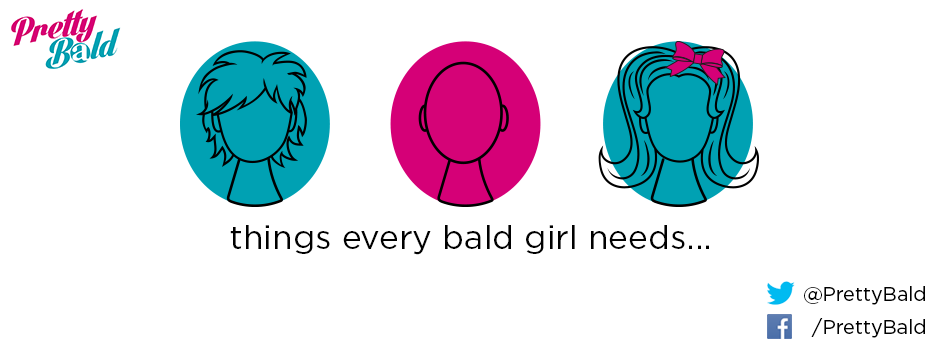Whether you lose your hair to alopecia, or through chemotherapy, it is inevitable that at some point at least one child will ask you about your lack of hair. In my experience, and through discussions with everyone else, it's never a malicious question, merely a curious one, but that doesn't necessarily make it easier to handle...
One of the reasons that children will ask about your hair loss is that it is visible; often the other symptoms of cancer or autoimmune conditions aren't visible, so it's natural children will attach to the lack of hair. Another is that it is 'different'; not that that's a bad thing, but that it's a change from their own appearance and experiences. What this results in is kids expressing their innate curiousity in a bid to understand the differences and their causes, working to categorise the world around them and whilst it might feel like they are singling out your lack of hair, they do the same with spots on the face, rashes, lisps etc.
A while ago, I read a blog post detailing a mother's first hand experience of other people's reactions to her child's disability; not negative as you might expect, but in fact how parents influence their own child's reactions by subconscious positive reinforcement. It's worth a read, but what this post highlights is that even if we don't mean to, our own reaction to situations and our actions in relation to them, heavily influence how a child will in turn react, now and in the future. By positively reinforcing actions, such as praising a child for playing with a disabled child, we are in fact highlighting the differences, not reinforcing the natural behaviour. In the same way, our reactions to a child's question about hair loss has the ability to form their entire opinion of the topic, and that is something we need to be very aware of.
The first thing you have to judge is the rough age of the child, as well as their capacity for an explanation. For some, a brief discussion will be all that is required and for others, a more detailed, knowledgeable explanation will be suitable. It will also be important to think about the question they asked and how they phrased it, as this can help form your answer. For example, some will ask why you have no hair, and some, like this gorgeous little boy did, will phrase it differently and that will help you gauge your response.
Some people may not agree with me, worrying that the idea of alopecia is too difficult to understand, but for me, the truth should be the focus of any answer. In every scenario where I have been asked, I have always explained that the condition is called alopecia and that my hair fell out because my body didn't like my hair any more. Every answer has some variation of this explanation, with more detail for those who want it, and a simple sentence for those who don't or who are really young. I do this for two reasons; the first is that a simple, honest explanation helps to inform and educate, making the most of every opportunity for awareness, and second, it ensures that I don't create more questions than I answer. Other things I include are things like "you know your body fights bad bugs to help you avoid being ill; well my body got confused and thinks my hair is a bad bug, so it got rid of it." Everything I say is based on the truth and whilst it might be an oversimplified version of an autoimmune condition, basing it on the truth helps me feel comfortable and respectful of the child as well. I've met many people who also give variations on this explanation, including relating alopecia to food allergies and an allergy to their hair, and you too will need to find something that helps you to explain it.
Something which often gets said to me is that people get feelings of fear and dread when they get asked this question, particularly if exposure of their bald head was accidental, but remember if you handle it positively and openly, you might just reinforce their positive feelings. At the end of the day, they probably don't realise it's even an awkward thing for you, and try to use that knowledge to fuel your own positive feelings.
Anyone else have any tips for explaining alopecia to children?
Victoria x
www.prettybald.co.uk
Twitter: @PrettyBald


No comments:
Post a Comment